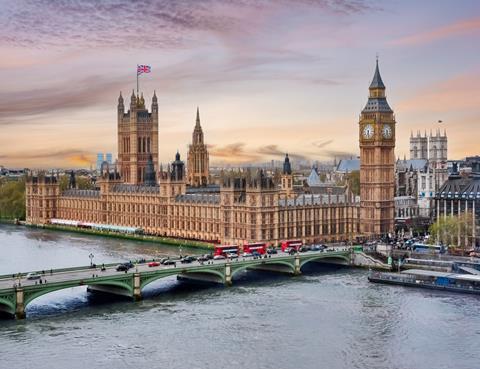Committee also recommends measures to incentivise reduced embodied carbon in homes
The House of Commons’ Environmental Audit Committee has hit out at what it calls the “lazy narrative” that nature poses an obstacle to delivering housebuilding.
Recent years have seen measures to protect species and improve biodiversity criticised by government ministers and housebuilding industry bodies alike for adding costs and bureaucratic obstructions to building more homes.

But in a new report ‘environmental sustainability and housing growth’, the cross-party select committee rejected the notion that nature and building targets are opposed and drew attention instead to skill shortages in key areas.
Committee chair Toby Perkins said that building 1.5 million homes by the end of the parliament while meeting its climate and sustainability targets would “certainly not be achieved by scapegoating nature”.
“We are clear in our report: a healthy environment is essential to building resilient towns and cities. It must not be sidelined,” he said.
The committee also found, however, that measures in the government’s Planning and Infrastructure Bill would not be enough to meet its targets on both the environment and housing, though it welcomed recent government amendments to the bill.
Perkins said that the government’s “welcome investments” in construction skills “may not be enough”, noting that staff at local authorities and regulators were already “stretched to their limit”.
To deal with the skills crisis in local authorities and agencies, the committee recommended the government establish a pilot programme for ecological resource hubs, to be made available to challenged local authorities, by July 2026.
It also recommended the government set out a “realistic” analysis of the construction workforce required to deliver its housing and environmental targets.
“We also need much better incentives for people to construct and live in carbon-friendly homes, or to retrofit existing ones,” Perkins said.
“That’s why this report suggests innovative approaches to boost manufacturing viability of climate friendly construction products and alter the tax burden in favour of climate friendly homes.”
It recommended that the government should consider steps to incentivise homeowners, housebuilders, landlords and tenants to favour homes with lower embodied carbon, such as a levy on new build properties containing higher levels of lifecycle carbon, and look into offering lower bands of council tax and stamp duty for such homes.
>>See also: Mandatory Biodiversity Net Gain one year on. Is it working?
It also urged the government to incentivise the use of sustainable building materials by introducing eco-labelling and to prioritise retrofitting over demolition by reducing VAT on retrofit projects from 20% and confirm that properties brought back into use would count towards housebuilding targets.
The committee offered support for the government’s biodiversity net gain policy, saying it was too early to assess its overall performance and urging against introducing new wide-ranging exemptions.
Throughout its inquiry, the committee heard concerns that changed to the presumption in favour of sustainable development made after the review of the National Planning Policy Framework would lead to the environment being “sidelined”. It recommended the government amend the current definition to strengthen safeguards against environmentally unsustainable, unplanned and speculative development.
The Chartered Institute of Housing’s head of policy and external affairs, Chloe Fletcher, welcomed what she described as a “detailed, rigorous” report and said she was “pleased to see the emphasis the report places on embodied carbon and sustainable construction”.
“At the heart of the report is the recognition that our homes can best provide a stable foundation for healthy living if they are climate-friendly, accessible, and embedded in green, flourishing communities and neighbourhoods,” she said.








No comments yet